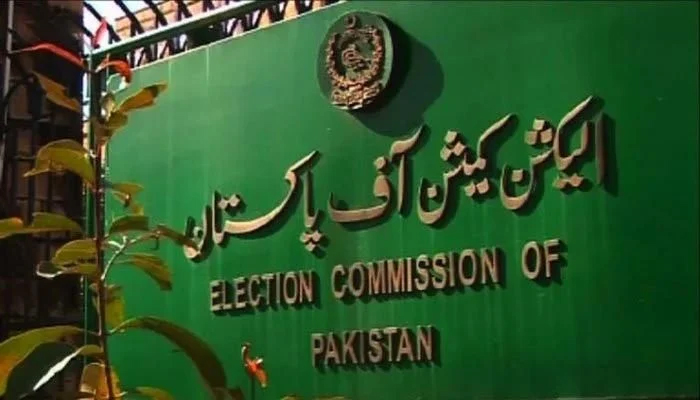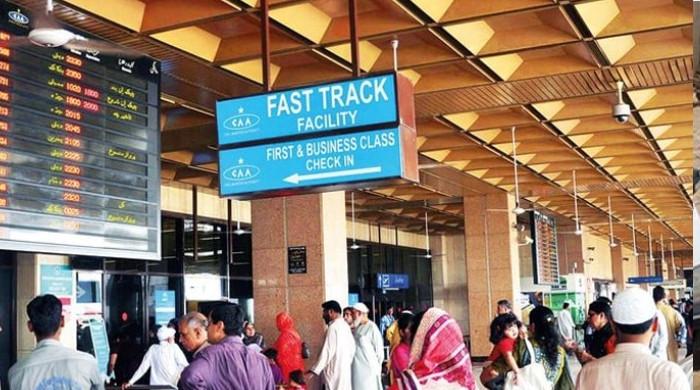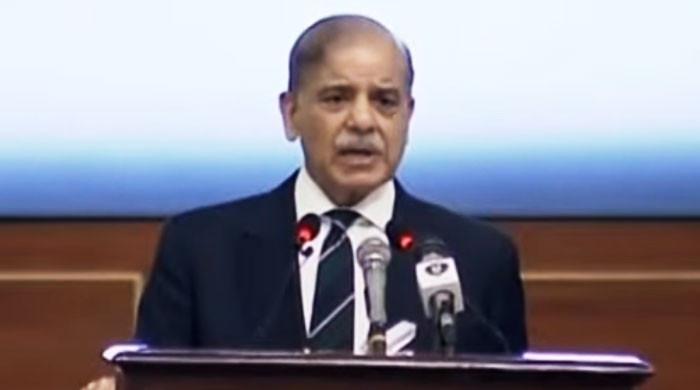ECP official says general elections not possible in three months: report
FAFEN identifies multiple constitutional, legal and operational challenges for conduct of an early election
April 05, 2022

- Senior ECP official says preparations for general elections would require around six months, according to report.
- Report cites recent delimitation of constituencies, bringing district and constituency-wise electoral rolls in conformity as hurdles.
- Fafen also identifies multiple constitutional, legal and operational challenges.
ISLAMABAD: A senior official of the Election Commission of Pakistan (ECP) has said it is not possible to hold general elections within three months due to various legal and procedural challenges, Daily Dawn reported Tuesday.
According to the publication, a senior ECP official said that preparations for the general elections would require around six months, citing recent delimitation of constituencies and bringing district and constituency-wise electoral rolls in conformity as major hurdles in early elections.
He was quoted as saying that “delimitation is a time-consuming exercise where the law provides for one month’s time just to invite objections, another one month was required to address the same.”
Read more: PM Imran questions why Opposition approached SC after elections were announced
The publication reported that the senior ECP official said a “minimum of three months would be required to complete the exercise, followed by another gigantic task of updating voters’ lists.”
Moreover, some other challenges include:
- Procurement of election material
- Arrangement for ballot papers
- Appointment and training of polling staff
According to the law, a ballot paper with a watermark is to be used which is not available in the country and would have to be imported.
The official disclosed that the ECP had proposed to “amend the law to provide for ballot papers with a security feature, instead of the watermark.”
He further told Daily Dawn that inviting bids and scrutinising financial and technical quotations would also require some time.
Shedding light on the issue regarding the procurement of election material, he said for around 100,000 polling stations, nearly two million stamp pads would be required.
Read more: 'Must uphold constitution first, move towards polls later', says Fazlur Rehman
“This is just one example, other material in huge quantities, including scissors and ballpoints, will also have to be procured,” he said.
Commenting on the legal challenges of holding a general election within three months, the ECP official said that under Section 14 of the Elections Act, the ECP was to announce an election plan four prior to the polls. He said the law requiring the use of electronic voting machines (EVMs) and giving overseas Pakistanis voting rights also held the field and had to be repealed.
The official said the commission had already announced the schedule for local government (LG) elections in Balochistan, setting May 29 as the polling day, while the process was also underway to hold LG polls in Punjab, Sindh and Islamabad.
“We will have to drop the plan for LG polls if general elections are to be conducted,” he noted.
Meanwhile, the ECP’s spokesperson issued a clarification in regard stating that no official statement has been released by the commission.
“It is necessary to clarify that the ECP has not issued any statement regarding the elections,” read a brief statement posted on their official Twitter handle.
FAFEN highlights critical challenges
The Free and Fair Election Network (Fafen), meanwhile, has also identified multiple constitutional, legal and operational challenges to the conduct of an early election, expressing grave concerns over the recent political developments and ensuing constitutional crisis, The News reported.
According to Fafen, an early election may not be a smooth process in view of several constitutional and legal complications.
Read more: PM Imran Khan ‘astonished’ over PDM’s reaction to election call
The most critical factor for the legitimacy of any election will be the completion of the Election Commission. The Commission Members from Punjab and Khyber Pakhtunkhwa have yet to be appointed.
The constitutional procedure for the appointment of members of the Commission after the dissolution of the National Assembly under a caretaker set-up remains unclear under Article 213 (2B), which requires the prime minister and the leader of the opposition to initiate the process in a specially formed committee comprising only senators.
Another concern is the constitutional and legal status of the current delimitation of National and provincial assembly seats since it was carried out on the basis of provisional results of the 2017 census.
The 25th Constitutional Amendment Act, 2017 through a proviso to Article 51 (5) of the Constitution provided for only a one-time exception to delimitations on the basis of provisional census results for GE-2018.
A fresh delimitation on the basis of the last preceding census officially published is, therefore, essential for the legality of future elections as per Section 17(2) of the Elections Act, 2017. However, the process of delimitation cannot be completed within three months as per the requirements of Chapter III of the Elections Act, 2017 and corresponding rules.
Read more: Even if speaker cites Article 5, no-confidence motion cannot be rejected, says CJP
There is also a need to grant representation to overseas Pakistanis as all political parties have made such commitments to the country’s diaspora in their election manifestoes. The under-registration of women on the electoral rolls is also one of the major issues that the Election Commission had started to successfully address through targeted campaigns.
While the ECP has been able to arrest the rising gender gap on the electoral rolls, there still are 11.37 million women who remain unregistered as voters.
In case the elections are called within three months, the electoral rolls will have to be frozen thirty days before the announcement of the election programme as per Section 39 of the Elections Act, thereby rendering millions of women voters disenfranchised.
Another challenge to early elections is the operational and logistical preparation by the ECP involving recruiting and training around one million polling staff, printing, publishing and transportation of election materials as well as the selection of locations for more than 10,000 polling stations that are to be established due to the addition of more than 15 million voters on the electoral rolls since GE-2018.











